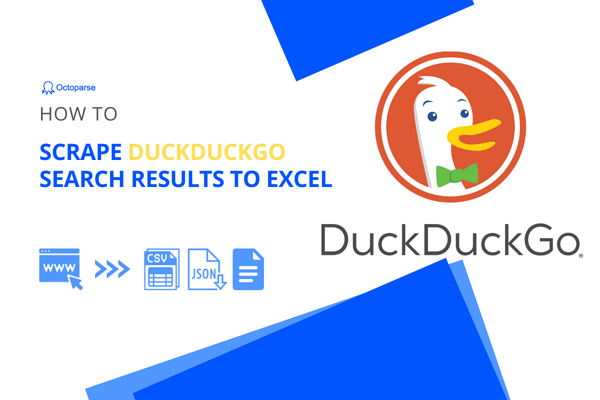
Introduction: Navigating the Complex World of Web Scraping
Imagine having the power to extract valuable search data effortlessly, transforming raw internet information into actionable insights. Web scraping, particularly from privacy-focused search engines like DuckDuckGo, has become an essential skill for digital professionals, researchers, and entrepreneurs.
DuckDuckGo represents a unique challenge in the web scraping landscape. Unlike traditional search engines, it prioritizes user privacy and provides consistent search results across different geographical locations. This makes it an intriguing platform for data extraction, offering a clean, unfiltered view of search landscapes.
Understanding the DuckDuckGo Ecosystem
When you approach DuckDuckGo for web scraping, you‘re not just dealing with a simple search engine. This platform aggregates results from multiple sources, creating a complex ecosystem of information retrieval. Its architecture differs significantly from Google, emphasizing user privacy and non-personalized search experiences.
The search engine leverages partnerships with various vertical search providers, open-source information repositories, and direct website indexing. This multi-layered approach means that scraping DuckDuckGo requires a nuanced, sophisticated strategy that goes beyond traditional web extraction techniques.
Legal and Ethical Considerations in Web Scraping
Before diving into technical implementation, understanding the legal landscape is crucial. Web scraping exists in a complex gray area where technological capability meets legal and ethical boundaries. While scraping itself isn‘t inherently illegal, how you collect, use, and distribute data can create significant legal challenges.
DuckDuckGo‘s terms of service provide critical guidance. The platform encourages responsible data usage while protecting user privacy. This means your scraping approach must be transparent, respectful, and aligned with ethical data collection principles.
Key legal considerations include:
- Reviewing and adhering to robots.txt guidelines
- Avoiding overwhelming server resources
- Obtaining necessary permissions for commercial use
- Respecting intellectual property rights
- Maintaining data privacy standards
Technical Approaches to DuckDuckGo Scraping
Python-Powered Web Scraping: A Comprehensive Strategy
Python offers robust libraries and frameworks for web scraping. The requests and BeautifulSoup libraries provide powerful tools for extracting search results efficiently.
import requests
from bs4 import BeautifulSoup
class DuckDuckGoScraper:
def __init__(self, query, region=‘us-en‘):
self.base_url = "https://duckduckgo.com/html/"
self.query = query
self.region = region
self.headers = {
‘User-Agent‘: ‘Mozilla/5.0 (Windows NT 10.0; Win64; x64)‘,
‘Accept-Language‘: ‘en-US,en;q=0.9‘
}
def extract_search_results(self):
payload = {
‘q‘: self.query,
‘kl‘: self.region
}
response = requests.post(
self.base_url,
data=payload,
headers=self.headers
)
soup = BeautifulSoup(response.text, ‘html.parser‘)
results = []
for result in soup.find_all(‘div‘, class_=‘result__body‘):
try:
title = result.find(‘h2‘, class_=‘result__title‘).text.strip()
link = result.find(‘a‘, class_=‘result__url‘)[‘href‘]
snippet = result.find(‘a‘, class_=‘result__snippet‘).text.strip()
results.append({
‘title‘: title,
‘link‘: link,
‘snippet‘: snippet
})
except Exception as e:
print(f"Result extraction error: {e}")
return resultsAdvanced Selenium Dynamic Scraping
For more complex scenarios requiring JavaScript rendering, Selenium provides a comprehensive solution:
from selenium import webdriver
from selenium.webdriver.common.by import By
from selenium.webdriver.support.ui import WebDriverWait
from selenium.webdriver.support import expected_conditions as EC
class DynamicDuckDuckGoScraper:
def __init__(self, query):
self.query = query
self.driver = webdriver.Chrome()
def scrape_dynamic_content(self):
self.driver.get(f"https://duckduckgo.com/?q={self.query}")
results = WebDriverWait(self.driver, 10).until(
EC.presence_of_all_elements_located((By.CLASS_NAME, ‘result__body‘))
)
scraped_data = []
for result in results:
title = result.find_element(By.CLASS_NAME, ‘result__title‘)
link = result.find_element(By.CLASS_NAME, ‘result__url‘)
scraped_data.append({
‘title‘: title.text,
‘link‘: link.get_attribute(‘href‘)
})
return scraped_dataPerformance Optimization and Scalability
Successful web scraping goes beyond basic data extraction. You must implement strategies that ensure reliable, efficient, and respectful data collection.
Proxy Rotation and IP Management
To prevent IP blocking and distribute requests effectively:
- Use reputable proxy services
- Implement random user-agent rotation
- Create intelligent request intervals
- Develop exponential backoff mechanisms
Error Handling and Resilience
Robust scraping frameworks require comprehensive error management:
- Implement detailed logging
- Create retry mechanisms
- Design circuit breakers for rate limiting
- Develop fallback strategies
Emerging Trends in Web Scraping Technologies
The web scraping landscape continuously evolves. Machine learning, serverless architectures, and advanced headless browser technologies are reshaping data extraction methodologies.
Artificial intelligence is increasingly being integrated into scraping tools, enabling more intelligent, adaptive data collection strategies. These technologies can automatically detect and adapt to website structural changes, making scraping more resilient and efficient.
Practical Applications and Use Cases
Web scraping DuckDuckGo isn‘t just a technical exercise—it‘s a gateway to valuable insights across multiple domains:
- Market Research: Tracking competitive landscapes
- SEO Analysis: Understanding search result dynamics
- Content Strategy: Identifying trending topics
- Academic Research: Gathering unbiased information
- Competitive Intelligence: Monitoring industry trends
Conclusion: Mastering the Art of Responsible Web Scraping
Web scraping DuckDuckGo requires a delicate balance of technical skill, ethical consideration, and strategic thinking. By understanding the platform‘s unique architecture and implementing robust, respectful extraction techniques, you can unlock a wealth of digital information.
Remember, successful web scraping isn‘t about how much data you can extract, but how intelligently and responsibly you approach data collection.
Recommended Tools and Resources
- Scrapy
- Beautiful Soup
- Selenium
- Puppeteer
- Request-HTML
Final Recommendations
- Stay updated with evolving web technologies
- Prioritize ethical data collection
- Continuously refine your scraping techniques
- Respect website guidelines and user privacy










